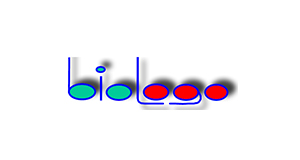p16 INK4a (DCS-50)
p16 INK4a (DCS-50), IgG1, Host: Mouse, Monoclonal, Clone: DCS-50
SKU
BILP16002
Packaging Unit
50 µg
Manufacturer
BioLogo
Availability:
loading...
Price is loading...
Clone: DCS-50.
Background: The antibody is suitable to detect p16 in different tissues. Staining results may be cytoplasmatic or nuclear. Nuclear staining should be mor specific. Human p16 INK4a (syn. CDKN2; MTS-1) protein is an inhibitor of Cyclin-Dependent-Kinases 4 and 6 (cdk4/cdk6). CDK4 is an important enzyme for the progression of the cell cycle during the G1-Phase. By it's inhibitory action p16 is an important regulator in the cell cycle. The gen encoding for p16 is deleted in many tumour cell lines. In adenocarcinoma of the cervix uteri usually p16 levels are increased. Endocervical p16-overexpression is mostly associated with "high risk" HPV-Typing. In other tumour types as squamous epithelial carcinoma in cervix uteri and head and neck carcinoma p16 expression usually is reduced.
Positive Control: Colon carcinoma, HPV-pos. cervical carcinoma.
Immunogen: Recombinant human p16 INK4a molecule.
Purification Method: Protein A affinity purification.
Concentration: Approximately 50 µg/ml after reconstitution in 1 ml distilled water.
Source: Monoclonal antibody DCS-50 is produced after immunisation of Balb/c mice with the full length recombinant p16 INK4a protein of human origin.
Specificity: p16 INK4a.
References: 1. Koh J., Enders G.H., Dynlacht B.D., and Harlow E. (1995) Tumour-derived p16 allels encoding proteins defective in cell cycle inhibition. Nature 375; 506-510. 2. Reed A.L., Califano J., Cairns P., Westra W.H., Jones R.M., et al. (1996) High frequency of p16 (CDKN2/MTS-1/INK4A) inactivation of head and neck squamous cell carcinoma. Cancer Res. 56(16); 3630-3633. 3. Geradts J., Hruban R.H., Schütte M., Kern S.E., and Maynard R. (2000) Immunohistochemical p16INK4a analysis of archival tumors with deletion, hypermethylation, or mutation of the CDKN2/MTS1 gene. A comparison of four commercial antibodies. Appl. Immun 4. Negri G., Egarter-Vigl E., Kasal A., Romano F., Haitel A., Mian C. (2003) p16INK4a is a useful marker for the diagnosis of adenocarcinoma of the cervix uteri and its precursors: an immunohistochemical study with immunocytochemical correlations. Am J. S 5. Kotaro R. Shibata,Tomoki Aoyama,Yasuko Shima et al. (2007) Expression of the p16INK4A Gene Is Associated Closely with Senescence of Human Mesenchymal Stem Cells and Is Potentially Silenced by DNA Methylation During In Vitro Expansion Stemm Cells vol. 9; 2371–2382.
UniProt: P42771 (CD2A1_HUMAN).
Caution: *These antibodies are intended for in vitro research use only. They must not be used for clinical diagnostics and not for in vivo experiments in humans or animals. ** The preservative sodium azide is known to be poisonous and potentially hazardous to health. It should be handled only by trained staff. Despite of the product's low azide concentration it must be handled with care. Dispose according to regional rules!
Background: The antibody is suitable to detect p16 in different tissues. Staining results may be cytoplasmatic or nuclear. Nuclear staining should be mor specific. Human p16 INK4a (syn. CDKN2; MTS-1) protein is an inhibitor of Cyclin-Dependent-Kinases 4 and 6 (cdk4/cdk6). CDK4 is an important enzyme for the progression of the cell cycle during the G1-Phase. By it's inhibitory action p16 is an important regulator in the cell cycle. The gen encoding for p16 is deleted in many tumour cell lines. In adenocarcinoma of the cervix uteri usually p16 levels are increased. Endocervical p16-overexpression is mostly associated with "high risk" HPV-Typing. In other tumour types as squamous epithelial carcinoma in cervix uteri and head and neck carcinoma p16 expression usually is reduced.
Positive Control: Colon carcinoma, HPV-pos. cervical carcinoma.
Immunogen: Recombinant human p16 INK4a molecule.
Purification Method: Protein A affinity purification.
Concentration: Approximately 50 µg/ml after reconstitution in 1 ml distilled water.
Source: Monoclonal antibody DCS-50 is produced after immunisation of Balb/c mice with the full length recombinant p16 INK4a protein of human origin.
Specificity: p16 INK4a.
References: 1. Koh J., Enders G.H., Dynlacht B.D., and Harlow E. (1995) Tumour-derived p16 allels encoding proteins defective in cell cycle inhibition. Nature 375; 506-510. 2. Reed A.L., Califano J., Cairns P., Westra W.H., Jones R.M., et al. (1996) High frequency of p16 (CDKN2/MTS-1/INK4A) inactivation of head and neck squamous cell carcinoma. Cancer Res. 56(16); 3630-3633. 3. Geradts J., Hruban R.H., Schütte M., Kern S.E., and Maynard R. (2000) Immunohistochemical p16INK4a analysis of archival tumors with deletion, hypermethylation, or mutation of the CDKN2/MTS1 gene. A comparison of four commercial antibodies. Appl. Immun 4. Negri G., Egarter-Vigl E., Kasal A., Romano F., Haitel A., Mian C. (2003) p16INK4a is a useful marker for the diagnosis of adenocarcinoma of the cervix uteri and its precursors: an immunohistochemical study with immunocytochemical correlations. Am J. S 5. Kotaro R. Shibata,Tomoki Aoyama,Yasuko Shima et al. (2007) Expression of the p16INK4A Gene Is Associated Closely with Senescence of Human Mesenchymal Stem Cells and Is Potentially Silenced by DNA Methylation During In Vitro Expansion Stemm Cells vol. 9; 2371–2382.
UniProt: P42771 (CD2A1_HUMAN).
Caution: *These antibodies are intended for in vitro research use only. They must not be used for clinical diagnostics and not for in vivo experiments in humans or animals. ** The preservative sodium azide is known to be poisonous and potentially hazardous to health. It should be handled only by trained staff. Despite of the product's low azide concentration it must be handled with care. Dispose according to regional rules!
| SKU | BILP16002 |
|---|---|
| Manufacturer | BioLogo |
| Manufacturer SKU | P16002 |
| Green Labware | No |
| Package Unit | 50 µg |
| Quantity Unit | STK |
| Reactivity | Human |
| Clonality | Monoclonal |
| Application | Immunohistochemistry (frozen), Immunohistochemistry (paraffin), Immunoprecipitation, Western Blotting |
| Isotype | IgG1 |
| Host | Mouse |
| Product information (PDF) | Download |
| MSDS (PDF) |
|

 Deutsch
Deutsch







